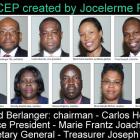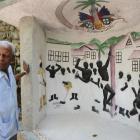ADVERTISEMENT
Election
Leopold Berlanger getting ready to hold next election
Here is a picture of the president of the CEP, Leopold Berlanger as he is getting ready to hold next Haiti election
On June 6, 2016, the Chairman of the election committee (CEP) Leopold Berlanger has invalidated last year's presidential elections and has announced in a press conference that the Provisional Electoral Council (CEP) will hold a fresh election in next October 9, 2016, and January 8, 2017. The Provisional Electoral Council will work under the advice of the Verification Commission, which in last May recommended annulling the published results of the last presidential election and making preparation for a new election. The CEP has to make arrangements for legislative elections for some centers also which remained pending in some parts of the country. Leopold Berlanger said, his commission is presently working to resolve issues with "Mandataires" or poll watchers who were responsible for massive frauds. In the last election, over 1 million blank accreditation cards were issued as "Mandataires" and that allowed them to cast multiple ballots at polling stations in such a way so that it was impossible to determine the number of voters who went to the polls.
Youri Latortue admitted PHTK rigged elections
Senator Youri Latortue who was an adviser to president Michel Martelly admitted that PHTK had rigged the elections of August 9 and October 25, 2015. He is afraid the provisional president of Haiti, Jocelerme Privert is attempting to do the same thing that PHTK did by rigging the coming elections toward a particular group.
As per the news dated June 19, 2016, Youri Latortue, the Senator of Ayiti An Asyon (AAA) and former advisor to former President Martelly has finally admitted that Martelly's political party PHTK had rigged the elections on August 9 and October 25, 2015. And he did not stop here. He has further warned, he believes that President Jocelerme Privert is planning to rig the coming elections in favor a specific group in the same way as PHTK did". Youri Latortue is an outspoken senator and one of Haiti's most powerful politicians. He was a lieutenant in the Haitian Armed Forces (FADH). It is a known fact that he was involved in many of the political killings carried out during the 1991-94 coup, in particular the shooting of Father Jean-Marie Vincent in August 2004. According to the testimony and reports of many colleagues, Latortue is a gang godfather, drug-trafficker and death-squad leader. He is the big boss of Gonaïves who has helped bring down Haitian governments several times. In a 2007 cable published by Wiki Leaks, it was learned that U.S. Ambassador to Haiti Janet Sanderson described him as "the poster boy for political corruption in Haiti."
Jean Bertrand Aristide and Maryse Narcisse, last day of campaigning
Here is a picture of Former President Jean Bertrand Aristide and Maryse Narcisse on the last day of campaigning
Aristide Supports Lavalas Candidate Narcisse.
Hordes of excited Haitians streamed alongside the campaign vehicle of Maryse Narcisse, riding with former President Aristide in a parade to mark the end of her campaign for president. Narcisse is running under Aristide's Fanmi Lavalas, one of 56 candidates vying for the top job.
Most of the crowd was from slum Cite Soleil and are Lavalas supporters, one of whom says "It's the party that knows the pain of the Haitian people."
The 5 Independent Members of the Verification Commission
Here is a picture of the 5 Independent Members of the Verification Commission. The 5 Independent Members of the Verification Commission established - From Right to Left: Francois Benoit, Gedeon, Pierre Wilfrid Sanon, Marc Donald Jean, and Michel Eric Gaillard.
On Thursday, April 28, 2016, at the National Palace, the Provisional President Jocelerme Privert accompanying the Prime Minister Enex Jean-Charles installed the 5-member Independent Commission for Electoral Evaluation and Verification (CIEVE). The main objectives of installing this commission are, reviewing previous election processes and results, electoral court decisions, and restore confidence and trust before moving forward with the unfinished election. The five members of the Commission are: (1) Mr. François Benoît, the leader, and former member of the Provisional Electoral Council (2005-2006); (2) Mr. Gédéon Jean, former member of the Independent Electoral Evaluation Commission created by presidential decree dated December 22, 2015 (under the Martelly regime); (3) Mr. Pierre Wilfrid Sanon, designated by the Haitian Association of construction companies; (4) Father McDonald Jean, appointed by the Anglican Church (former senator and member of the Council of the Wise in 2004); and (5) Mr. Michel Eric Gaillard, designated by the Order of Chartered Professional Accountants of Haiti.
Francois Benoit, President of Verification Commission
Here is a picture of Mr. Francois Benoit, President of Verification Commission.
Pierre Francois Benoit, the leader of the Independent Commission for Electoral Evaluation and Verification (CIEVE) has completed the audit of last election and concluded the findings of the commission after a month long review. As per his report dated May 30, 2016, after an examination of 25% random sample of the roughly 13,000 tally sheets from polling stations, the Commission has noticed about 628,000 untraceable votes. Lot of votes could not be traced to a voter or to a group of voters. It has been observed that often number of untraceable votes in the polling stations have surpassed the legitimate votes. Out of the total valid votes of 1,560,631 about 29% or 448,000 voters were untraceable and 180,250 were with fake CIN, making a total of 628,000 or 40% of total valid votes (1,560,631). It was further noticed that first place winning president candidate received more number of untraceable votes than the combined total of such votes to second and third place winners. The CIEVE has recommended throwing out the disputed results of last year's first-round presidential election and restart from zero, because it appeared to be tainted by fraud. As per Benoit, it appeared electoral fraud was masterminded at a "high level."
The CEP created by Jocelerme Privert
Here is a picture of the CEP created by Jocelerme Privert with Leopold Berlanger: chairman - Carlos Hercules: Vice President - Marie Frantz Joachim: Secretary General - Treasurer Joseph Frinel.
On Wednesday, March 30, 2016, at the Court of Cassation (Champ-de-Mars), the 9 members of the Provisional Electoral Council (CEP) were appointed by the interim President Jocelerme Privert. Léopold Berlanger representing Press sector and Carlos Hercule, representing the Episcopal Conference of Haiti were elected as the President and Vice President respectively. At the meeting with the Provisional President Privert on 19 April 2016, the new CEP submitted their proposed plan of actions that should be implemented for achieving the remaining election process. Their proposed agenda included: assessment of the function of electoral machinery, dialogues with the government, civil societies, and between the CEP on implementing a more transparent and strict management of the election process, reinforcing autonomy within the CEP, reopening of the relevant municipal records and the modernization of the electoral system. Prime Minister Jean-Charles Enex, and the Minister of Finance, Mr. Yves Romain Bastien were present in the meeting with their respective high officials. Among the points discussed include: the budget of the future elections and discussion on the CEP's fund requirement.
Zombie votes in Haiti Election, October 25, 2015
May 30, 2016 - A Verification Commission headed by Pierre Francois Benoit reported that the elections conducted on October 25, 2015 was characterized by significant fraud and professional misconduct. "After digging into it, we started seeing a pattern where a lot of votes could not be traced to a voter or to a group of voters. I call them "zombie votes"
On the evening of May 30th, 2016, Haiti's Independent Commission of Electoral Evaluation and Verification (CIEVE), a five-member team led by a businessman, Francois Benoit, who is a former ambassador to the U.S, released its long-awaited report on the controversial Washington-supported Haitian elections of August 9 and October 25, 2015. The audited report of the five member panel reveals that "the electoral process was marred by serious irregularities, grave inconsistencies, and massive fraud, because only 9% of the total vote cast has been found to be valid." The members of the CIEVE have reviewed 3,235 voter tallies (procès verbal), i.e., a 25% random sample of 12,939 total votes cast.
Their concern includes the complete lack of female officials elected. However, as per the Commission, at least one woman Nétlande Pierre Dérius of the Artibonite did indeed win by popular vote and her case along with 21 other legislature contestants should be remanded to a special electoral court for reinstatement.
The Report of the Commission of Evaluation to the Nation
Here is the report of the Commission of Evaluation to the Nation.
There were many instances where the number of untraceable votes (also called zombie votes) exceeded the legitimate votes. One of the CIEVE members has summed it up as, more dead people have voted than the livings. Suspecting a high level of electoral fraud, they have recommended that October's presidential first-round election should be "restart from zero." The number of untraceable votes received by the first-place presidential candidate, according to the results of the CEP, was higher than the total number of such votes received by the second- and third-place candidates and it was higher than the difference between the first- and fifth-place candidates. As per CIEVE, it appeared that electoral fraud was masterminded at a "high level." Not only some acts were committed in simple violation of the Act, they were well organized; even the electoral decree and the Opont led CEP violated its own standard which were not in conformity with the constitution and the principles of democratic governance."La mission de L'oea.
Martelly's Haitian Bald Headed Party (PHTK) has dismissed the findings of the Commission arguing that it is just a plan for Provisional President Jocelerme Privert to remain in power.
Commission of Verification at work
May, 20, 2016 - The chairman of the Election Commission of Verification, François Benoit as well as Several members of the Scientific and Technical Police were present at the Vote Tabulation Centre (CTV) to verify signatures and fingerprints of a sample of voters. The Evaluation Commission has 30 days to accomplish this their mission.
In last April, on 28th, the interim President Jocelerme Privert installed an Independent Commission for Electoral Evaluation and Verification (CIEVE) with the objectives of reviewing previous election results and electoral court decisions, before moving forward with the unfinished election. It was decided that the commission would conduct a random sample survey of 25% of the roughly 13,000 tally sheets collected from the polling stations.
The submitted Report of such Independent Commission on May 30, 2016, audited by a five-member panel, led by a businessman, Francois Benoit, who is a former ambassador to the U.S, shows that out of the total valid votes of 1,560,631 about 29% or 448,000 voters were untraceable, because they did not fill the required "procès-verbal de carence" which were meant to be filled by the representatives of political parties and election observers who were on duty, entitled to cast votes at the polling stations where they were engaged other than where they were registered to vote. The number of fake CIN numbers (as per National Identification Card) written by hands was 180,250 or 16.2% of the vote cast, because the signatures or fingerprints recorded at the voting centers do not match with the records on the CIN cards. For the 1,112,600 traceable votes, 180,250 were with fake CIN, making a total of 628,000 (448,000 + 180,250) untraceable votes or 40% of total valid votes (1,560,631).
The commission has further observed that often number of untraceable votes in the polling stations have surpassed the legitimate votes. The commission has noticed that number of untraceable votes received by the first-place candidate, according to the results of the CEP, was higher than the total number of such votes received by the second- and third-place candidates and it was higher than the difference between the first- and fifth-place candidates. The CIEVE has recommended rejecting the last year's first-round presidential election because it appeared to be tainted by fraud. As per Benoit, it appeared that electoral fraud was masterminded at a "high level."
However, the final decision whether to redo the election will have to be made by a reconfigured Provisional Electoral Council.
Verification commission at the Tabulation Center
Here is a picture where several members of the Verification Commission took over the Tabulation Center.
On Thursday, April 28, 2016, the Provisional President Privert installed the 5 members Independent Commission for Electoral Evaluation and Verification (CIEVE) to establish credibility of the 2015 election results and restore confidence and trust to participate in the upcoming elections. On Thursday, May 12, 2016, over 60 experts from such commission visited the Tabulation centers to take control over the situation and start their challenging tasks to check the compliance of the voting process, polling and counting in accordance with the Electoral rules. They are working under close observation of the representing political parties. Earlier, it was decided that since it is not possible to check every vote cast by 5.8 million registered voters, the commission would audit the last election process through a 15% random sample. However, as per the recent decision to avoid large sampling error, the sample size has been increased to 25%.

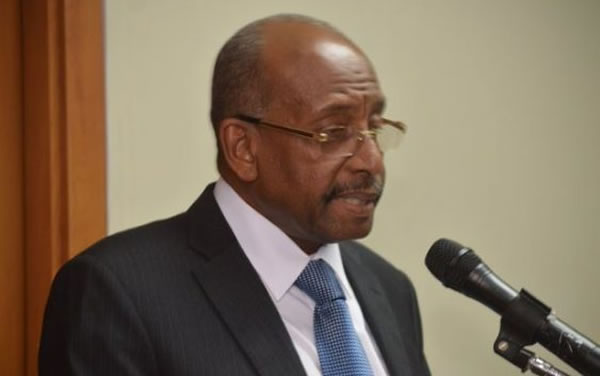
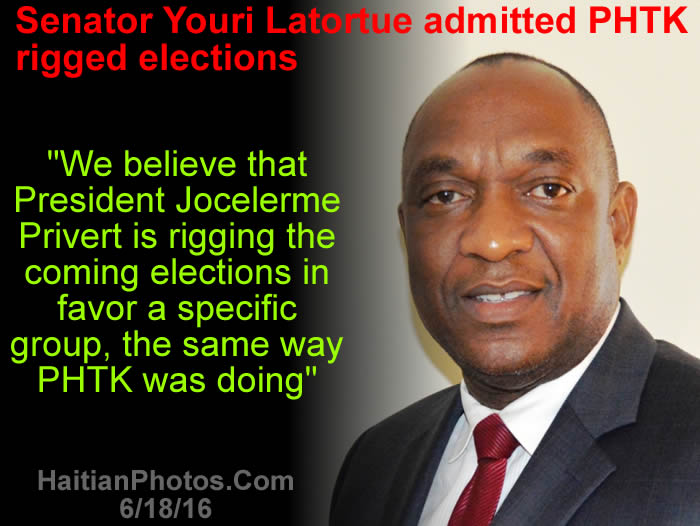

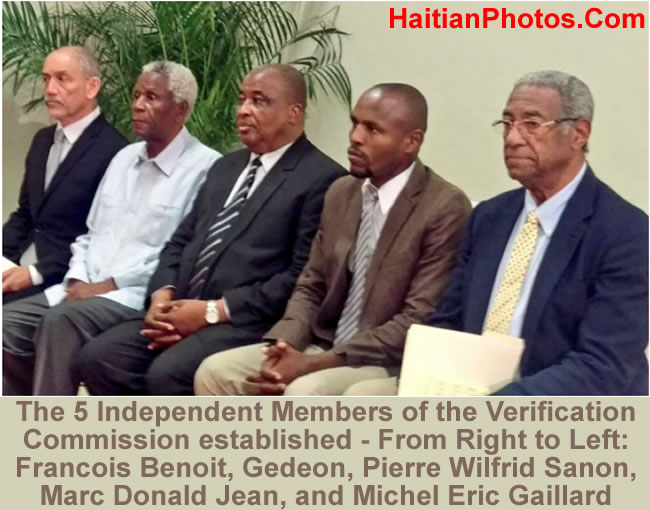
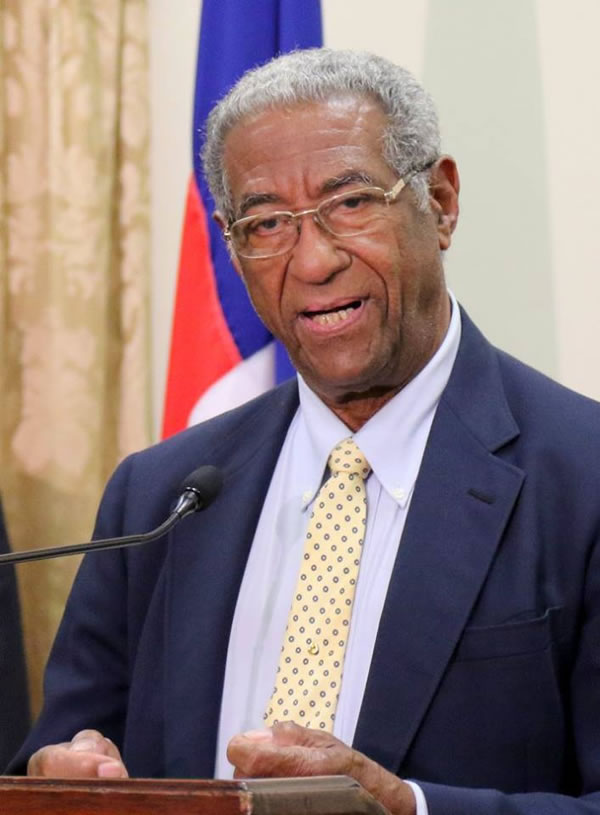
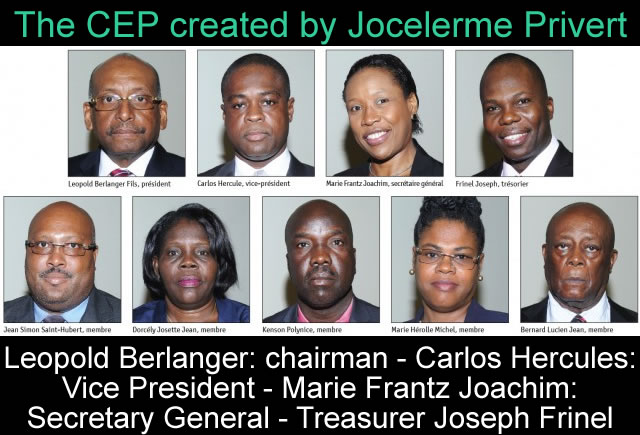
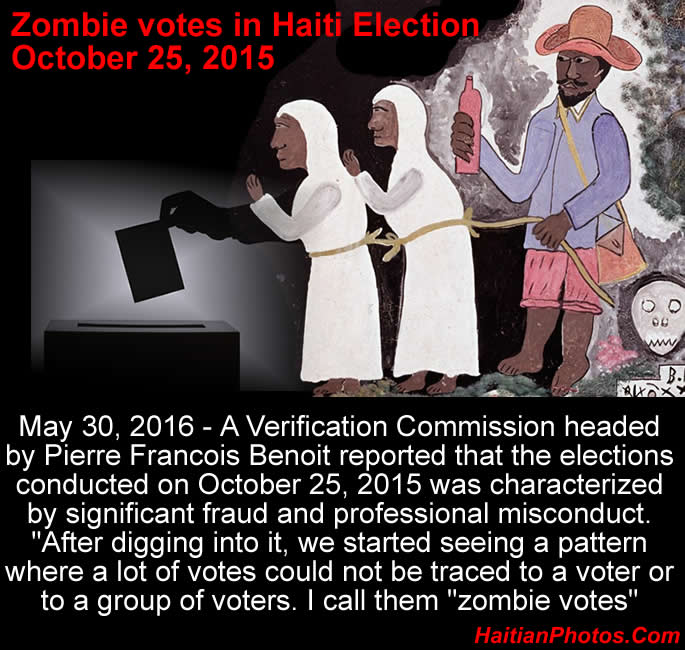
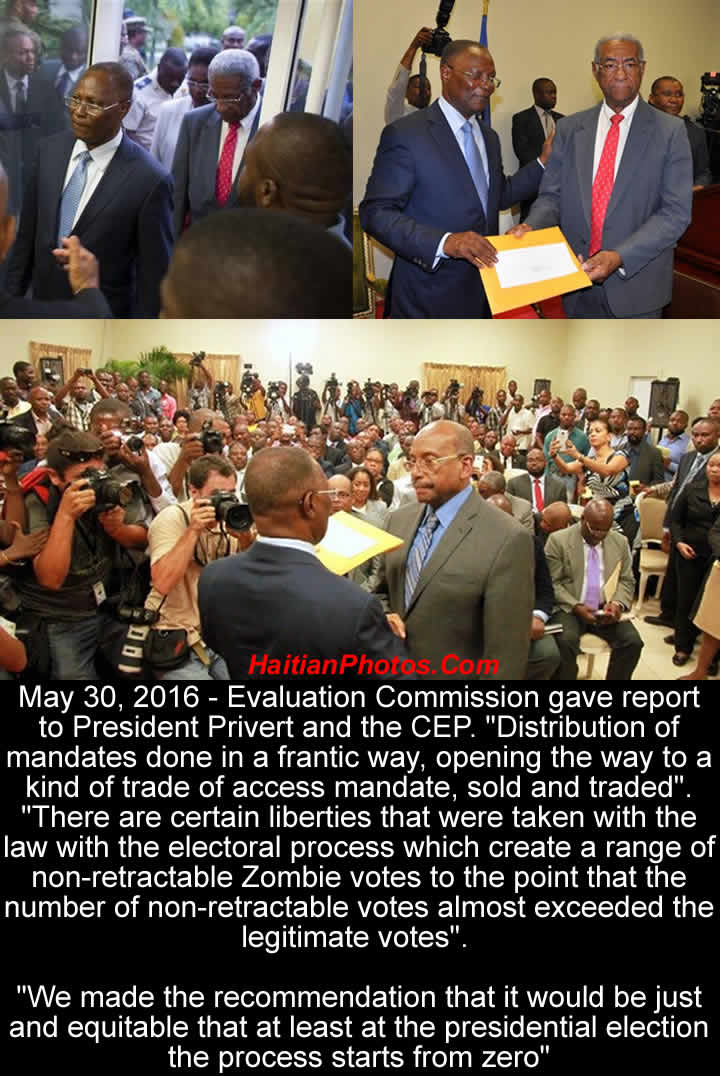
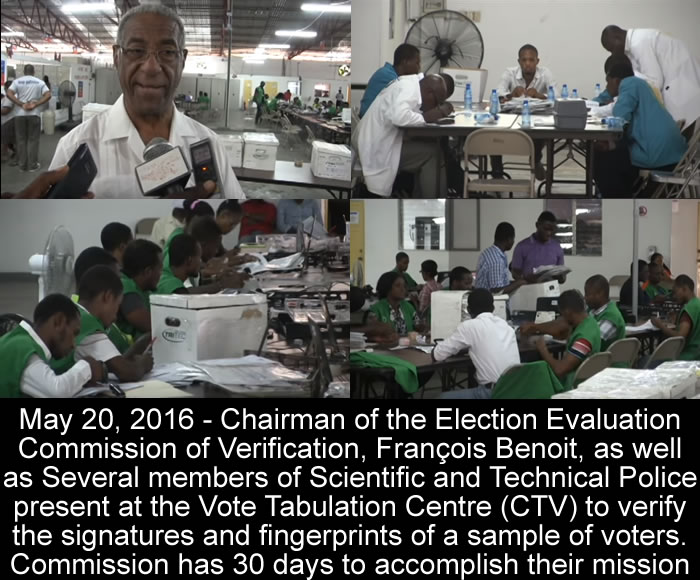
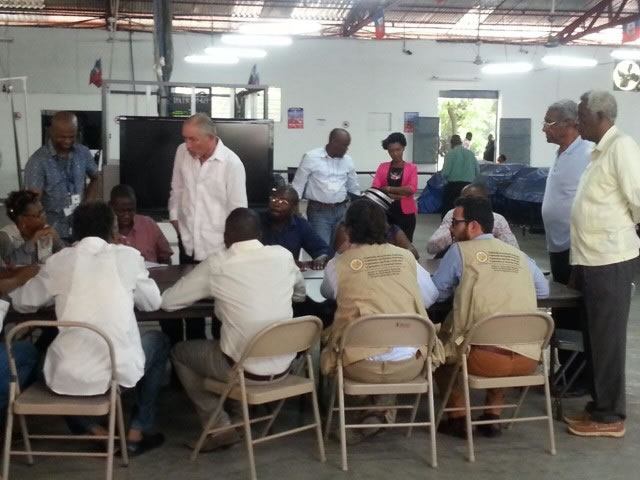
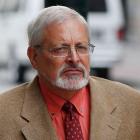 orphanage founder Michael Geilenfeld falsely accused of abuse
orphanage founder Michael Geilenfeld falsely accused of abuse  François Nicolas Duvalier Potential Candidate for President of...
François Nicolas Duvalier Potential Candidate for President of...  Nouveau College Bird in Port-au-Prince, Haiti
Nouveau College Bird in Port-au-Prince, Haiti  Philippe Vorbe entered world football Hall of Fame, CONCACAF
Philippe Vorbe entered world football Hall of Fame, CONCACAF  Haitiano-Japanese Naomi Osaka wins the US Open against Serena...
Haitiano-Japanese Naomi Osaka wins the US Open against Serena...  Port-au-Prince on fire over gas prices hike
Port-au-Prince on fire over gas prices hike 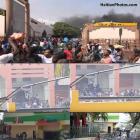 Delimart Plaza, Delmas 32, Port-au-Prince, Haiti being looted
Delimart Plaza, Delmas 32, Port-au-Prince, Haiti being looted 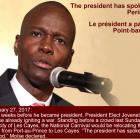 Jovenel Moise, the president has spoken. Period
Jovenel Moise, the president has spoken. Period 

